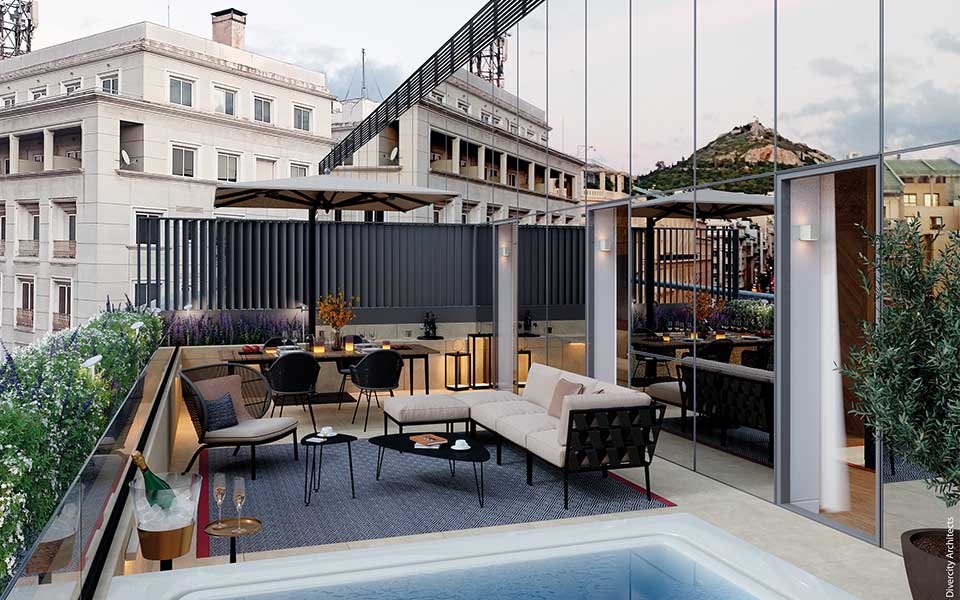The report that follows began with an honest question: Does Athens need all these hotels that are being built or about to be built in 2022 and over the next few years? Does the tourism product of the Greek capital merit the scale and size of the investments we read about every three days or so in the midst of a global health crisis? Obviously, these new units are being built with an eye to the post-pandemic era, but the question remains: is there such an explosive increase in demand capable of absorbing what is a possible oversupply of accommodation, if we add in a fully recovered Airbnb sector? Are we heading for an unreasonable increase in the market, now that Athens is looking more attractive than ever as a destination? What exactly is going on?
The final furlong
Let’s start from the beginning: according to the data of the Athens-Attica and Argosaronikos Hoteliers Association, the capacity of Athenian hotels before the coronavirus (December 2019) was 691 units, corresponding to 33,876 rooms and 64,935 beds, of which about 75% were 12 months old and about 25% seasonal. By the end of 2021, the numbers had not changed dramatically. Today, the metropolitan area has just over 700 new, refurbished or completely renovated hotels, and new licenses are constantly being issued in recent months. In short, the hotel market of Athens currently resembles the headlong rush to the finish line in a horserace. Only what we see today is not the finish line; it’s only the beginning. Over the next five years, foreign chains will be taking up places at the Athenian party in unprecedented numbers: Conrad and Waldorf Astoria are transforming the Hilton into a complex combining high end apartments and advanced hospitality services; the resort company One & Only is involved in the revival of the historic Asteria complex in Glyfada, and there’s the Ellinikon project, too, which envisions the construction and operation of two seaside luxury hotels. These very high profile investments are just the vanguard of a development explosion, as frenetic activity can also be seen on other fronts, with a focus on the center of Athens.

© George Fakaros - All Rights Reserved
The wrong question
According to Giannis Retsos, president of the Greek Tourism Confederation, or SETE, the question “How many hotels can Athens really use?” is wrong. He explains that, under free market conditions for a destination of the category and scope of Athens, we cannot accurately define a specific number of hotels or beds based on which to assess whether we have too many or too few units. Variables are, he maintains, just too complex to reduce to final figures.
“In 2012, at the height of the crisis and the devaluation of Athens as a destination, with far fewer hotels than today, low occupancy told us that we had more than enough hotels. In 2019, with the impressive recovery of tourism and with many more hotels, there was a feeling that we could not meet the demand. Now, with the shadow of the pandemic falling heavily on city hotels, we wonder again: Are bubble conditions being created? But again, we’re asking the wrong question.”
So what is the right question? To this, Retsos answers: “Will things evolve in tourism so that the investments made now will be amortized and become sustainable in the medium term?’ Will all of us, the state, the institutions, the individuals, do what we must to protect and upgrade our product? That is the question?”
So, will we do it? “I cannot speak on behalf of third parties, but the prevailing wind is strong,” said the president of SETE.
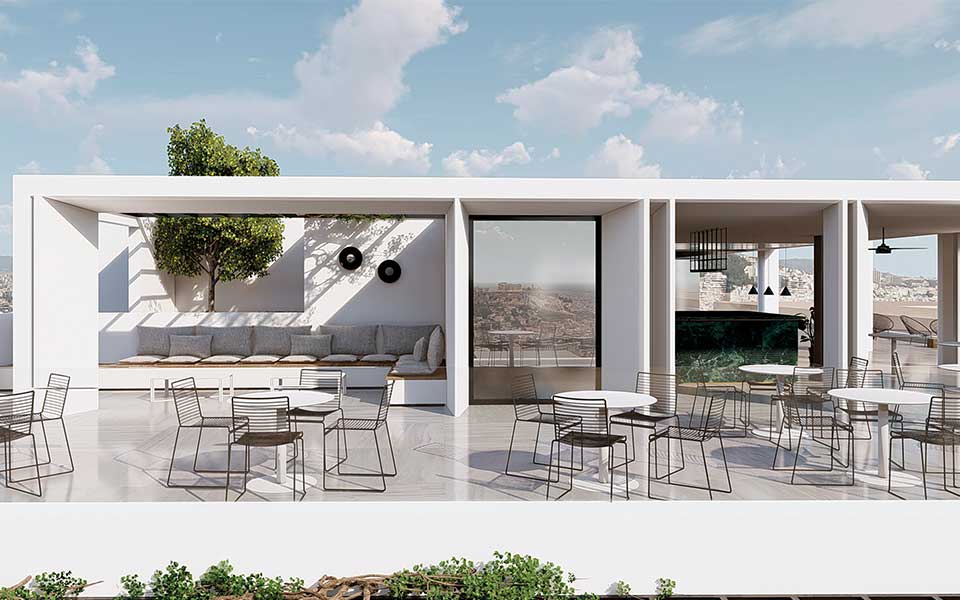
A fair wind
There are, Retsos says, two main reasons for his optimistic outlook. First of all, everything suggests that the current decade will be a period of great tourism development worldwide. “The aging of the population in developed countries will mean more time, money and mood for travel. The end of the pandemic will accelerate this trend. Speaking of Athens, its tourism product is constantly being enriched and will be enriched even more in the near future. The project at Ellinikon will not only affect the real estate market, it will have a strong impact on tourism as well. It will put Athens on a different high-income client map, creating a whole new dynamic. International hotel brands are already rushing to take a position in the market of tomorrow that is being created right now, because they are counting on the brand strength of the very complex destination that is Athens. In this respect, we should not be particularly surprised by this investment fever. Obviously, there are more casual players as well, but the international traveler today is much better informed and has certain requirements that are not limited to the room or the breakfast. People are looking for personalized experiences and value for money. Investors who try to simply take advantage of the situation will not go very far.”
Are there factors that can disrupt this auspicious climate? “Of course. City hotels were the hardest hit during the pandemic because, among other things, the convention and business travel industry collapsed. And they will be the last to fully recover, because it will take time for the city break market to return to the levels they were at before COVID. Athens has the additional disadvantage of being a distant city break destination for many European travelers, and therefore one of the most expensive to fly to. There is also a trend in Europe to reduce short-haul flights due to concern over climate change and the new taxes, which will make these trips more expensive.”
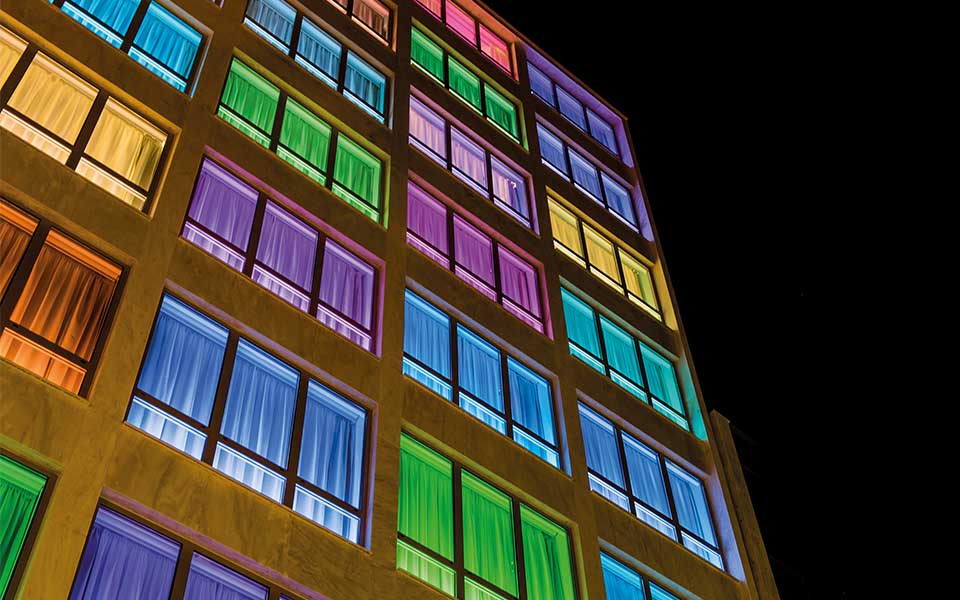
Why we’re investing in Athens
Kostis Karatzas was already committed to the idea of bringing the concept behind the Modernist hotel from Thessaloniki to Athens before the pandemic broke out. The inauguration of the renovated building on Ioannou Gennadiou Street, once home to the Canadian Embassy, took place in September of 2020, between the two quarantine periods. “We haven’t done a whole year because of the COVID,” says the Modernist founder, who represents a new generation and a new philosophy in hospitality. Karatzas, who studied civil engineering and architecture rather than hotel management, wanted to build a hotel that he’d like to stay in. “I definitely didn’t want to make another classic city hotel; I don’t come from that world. What interested me was to take out the things I felt were superfluous from most of city hotels I knew and add what I thought was missing.” He explains himself clearly with an example: “I don’t find it logical, for instance, for a hotel to try to persuade its customers to eat at the hotel restaurant when the city is full of so many better, more authentic restaurants that will enrich their experience and that I can help them discover.”
This very different concept of hospitality and proposal for urban exploration is one that Kostis Karatzas supports through synergies with local creators, who equip his two hotels with staff clothing, design objects and toiletries. As for his investment in Athens, he expects a relative normalization after the shock of the pandemic. He strongly believes in the future of Athens as a tourist destination (“Otherwise, I would not have taken the step I did”), but he also believes that we are currently witnessing an irrational over-investment that does not seem viable to him, one based more on emotion and less on business plans. “On the one hand, I see a lot of small accommodations with 15-18 rooms, as if everyone is joining in on something that seems to be selling, and, on the other hand, we are seeing large investments from foreign funds that seem oblivious to the local reality. A hotel is not just rooms and beds; people travel to have experiences. Even a careful attention to design won’t keep you fresh forever; there are, however, other things that will keep you in the market for years to come, even when you’re no longer be the newcomer to the neighborhood.”
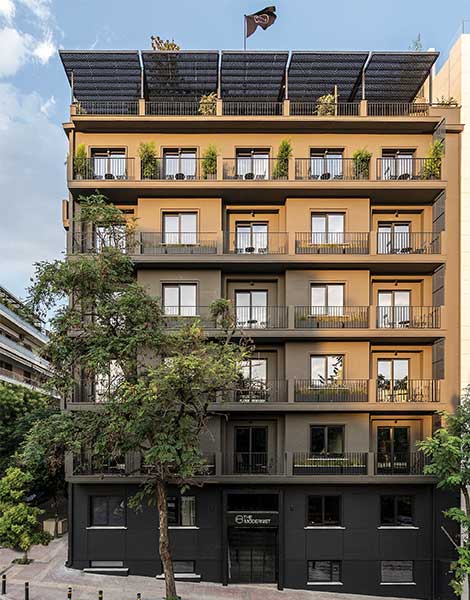
© Ioanna Roufopoulou

© Ioanna Roufopoulou
“What we see is the pie growing”
Paris Kallitsantsis is not a “hotelier” per se; his company, Blend Development, is active in the field of real estate development and exploitation. Nevertheless, Blend is behind the operation of a new hotel on Vyssis Street, in the heart of the old commercial district of Athens, which in recent years has become a prime destination for leisure and entertainment. “We invested in the region because we believed and still believe in its future; it was our strategic choice. Three years later, things are not exactly the way we had imagined. Obviously, the health crisis has played a role, but the direction still seems clear.” He sees in the near future a single tourist route that will start from the outskirts of Plaka at the beginning of Aiolou Street and traverse Athenas and Patission streets on their way to the National Archaeological Museum, with revitalized Omonia Square as a convenient stop on the way.
As for the tourist dynamics of Athens, Kallitsantsis believes that it needs to be connected with the general demand for the product that is Greece. “They are two parallel narratives; on the one hand, there’s the consolidation of a climate of security and trust, and at the same time there is an explosion of creativity in Athens that has to do with areas critical to tourism, such as catering, drinks, art, and cultural infrastructure. It is a completely new reality, which was formed at the end of the crisis and is constantly being enriched. So, looking at Greece changing and Athens changing, I do not think that investing in the city’s tourism is unreasonable. What we are really seeing is the pie growing.”
Kallitsantsis says he’s optimistic. Perhaps this is because he saw his hotel, with a capacity of 24 beds, operating at almost full capacity last October and November. That was, of course, before the Omicron bomb dropped, which dragged all occupancy figures in the city down sharply.
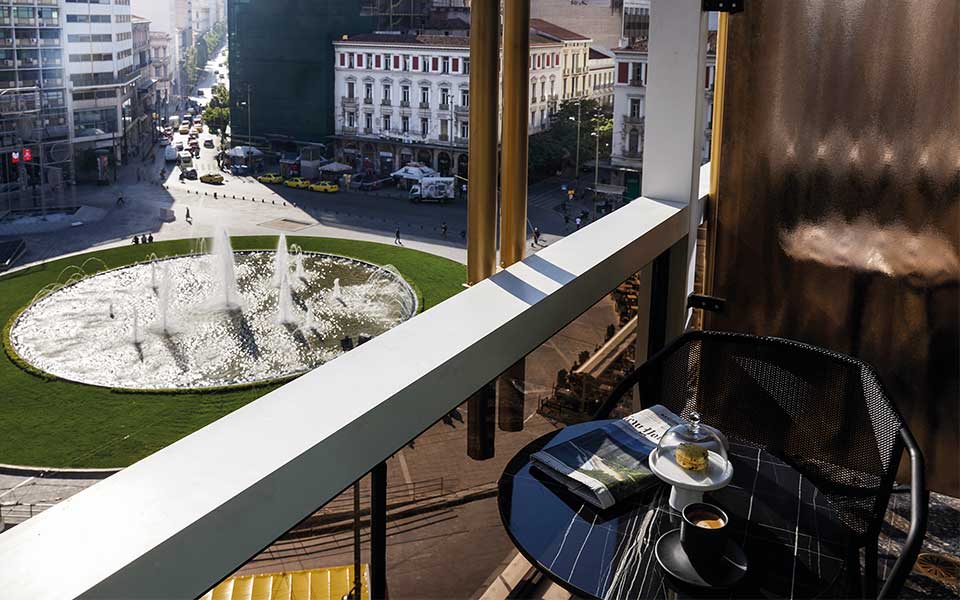
© Vangelis Paterakis
“It’s not a bubble”
The Brown Hotels, an Israeli hotel chain that has fallen in love with Athens and is investing in the city as if there is no tomorrow, is another case in point. No less than ten new Brown hotels have opened or are scheduled to open in the near future, mainly in the wider area surrounding Omonia Square. Talking to Leon Avigant, the founder of the company, you understand that his passion for the city is not transient. In fact, he is so committed to the future of the city, he recently moved here with his whole family.
“We believe in Athens. It was and is a destination that is in demand all year round. It can offer the visitor an experience for all the senses, and there’s some of interest for everyone. In addition to the classic archaeological beauty of the city, there’s a new gastronomic scene, new neighborhoods of architectural interest, and the locals keep everything very lively. This year has started with challenges, but from spring onwards, we firmly believe that things will rebound to pre-COVID levels; people are hungry for travel. For this reason, and because of our love in Greece, we’re continuing to expand our presence both in the Omonia area and in other neighborhoods and cities, including Agioi Theodoroi outside of Corinth, Chania on Crete, Thessaloniki, and the island of Evia. In Athens, tourism will continue to thrive; it is not a bubble. There’s a need for new hotels, with excellent services and a fresh look. Investments are being made along the Athenian Riviera, in Elliniko, and especially in the area of Omonia, where, apart from us, other big brands, such as Marriott and Accor, are putting in their money.”
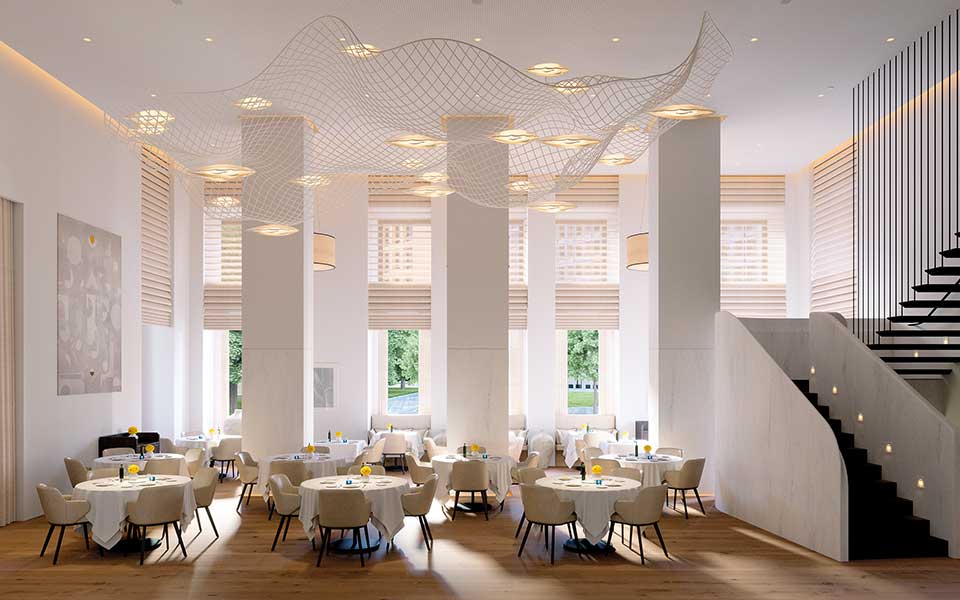
A positive future
In this present climate, the voice of Lambrini Karanassiou-Zulovic, the president of the Athens-Attica and Argosaronikos Hoteliers Association, sounds quite troubled. “The pandemic paralyzed Athenian hotels right up to May 2021, impacting on occupancy, average room rate and revPAR (income per available room) and indicative of a vertical drop unprecedented in the history of the city’s tourism,” she tells me. “Many hotels were closed, or opened and closed from time to time, while other hotels were left open without, of course, servicing sufficient clientele. In 2021, things improved dramatically; however, the average occupancy did not exceed 53% and, of course, it could not cover the losses of the previous period.”
So what does she see for the new year? “For 2022, the messages are, I would say, ambiguous. Positive prospects and messages are present. People want to travel, there is interest, and everything indicates that, after another very difficult winter for the hotels of Athens, things may eventually get better. That is, if the pandemic subsides, if case numbers and consequent concerns diminish, and if nothing new or equally catastrophic emerges.”
I point out to her that investments are being made at a frenetic pace. “We realize that all this significantly strengthens the image, reputation and proposal of our city, and renews the Athens fleet of hotel rooms and beds. Together with certain significant investments of general or special character, such as those being made at Ellinikon and Tatoi, everything indicates that Athens will be a new city going forward: stronger, more modern and completely renewed, which is something that is a common goal and vision.”
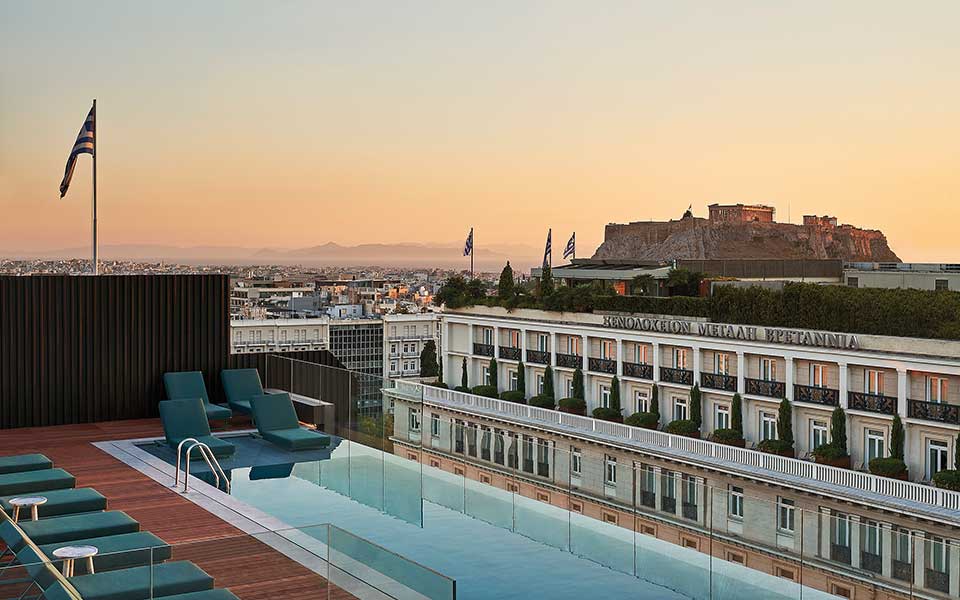
© Christos Drazos
Is there perhaps some reason to think otherwise? “The most dangerous problem that exists in our view,” the president says, “concerns the mechanism of ‘supply and demand.’ This is because, in parallel with the new investments in hotels, many additional beds in urban accommodation of all types, not just in hotels, have, unfortunately, already been included in the tourist fabric of our city without any planning, strategy or oversight. Obviously, targeted actions to strengthen tourist demand for Athens should increase. Or, at least, it would be advisable to turn, in time, towards both more basic and newer markets, highlighting our comparative advantages in ways that would surely affect the choices of travelers, bringing Athens back to the forefront after many, many years. The messages regarding the satisfaction levels of visitors to Athens – based on the relevant annual surveys done by the Union – are extremely encouraging, but the demand really needs to be stimulated, to open wider horizons for conferences, business meetings and business trips, to significantly enhance cruise industry engagement and, in general, to follow the necessary strategies that will fill all these beds with visitors. At the same time, all those involved, public and private sector stakeholders alike, need to look into what kind of tourism we want for Athens and to come to some decisions together. That is, to map out what we want to offer, to categorize it and to plot a corresponding course, so that we are not faced with new surprises…”
Ground zero
The hotspot for investing is in the heart of Athens. In the last two years alone, the Brown Hotels chain has invested in ten hotel projects in the wider Omonia area. Brown Acropol and Dave Red Athens are already operational, as are Villa Brown Ermou (on trendy pedestrianized Petraki Street, between Ermou and Mitropoleos) and Kubic (on Agios Konstantinos), while the coming months will see the opening of Brown Spices on Evripidou, Domino House on Themistokleous, the Lighthouse (in the newly renovated former home of legendary La Mirage in Omonia Square) and the relaunch of the iconic Sans Rival in Vathis Square. Two more hotels from the same group will follow, one in the area of the National Archaeological Museum and one at the junction of Lykourgou and Socratous streets, all in the heart of old Athens.
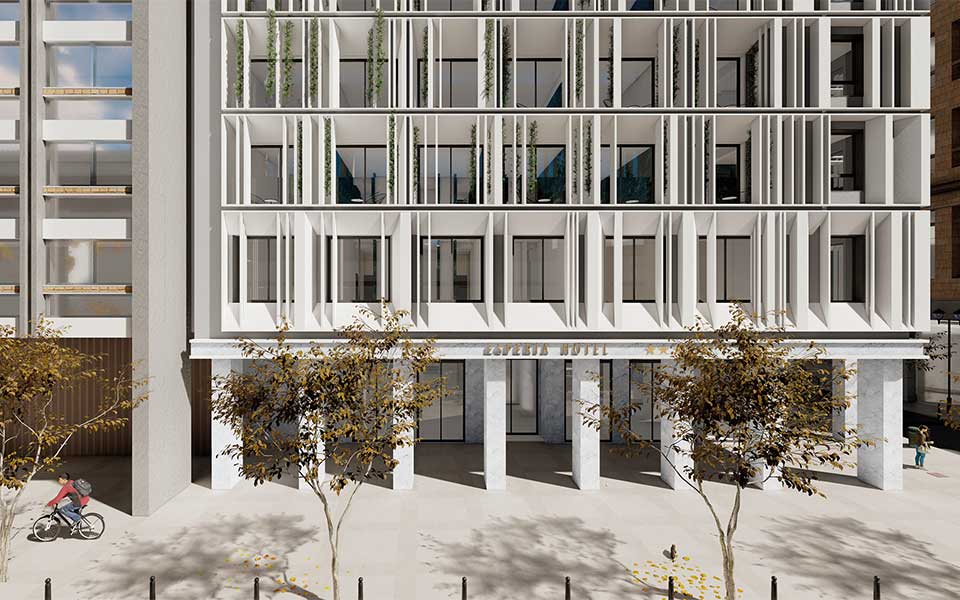
The same chain was the only one that submitted an offer for the utilization, through long-term rent, of the Social Security Fund building at 41 Stadiou Street. This street is at the center of interest of the hotel market as, in the coming months, it will see the implementation of investments totaling several million euros. The five-star Milos Hotel, home of the famous luxury restaurant of the same name, recently opened on Kolokotroni Street. The conversion of the Saroglio Megaron into a four-star hotel for the Moxy Hotels chain of the Marriott Group is well underway, as is the reconstruction of the classic old hotel Esperia Palace on Stadiou Street, which will become NYX Athens. The green light for another long-awaited investment on Stadiou, this time by the Douzoglou Group, came for the transformation of the National Telephone Company building into a five-star hotel unit. (The project concerns the creation of a hotel from two buildings on property located at 15 Stadiou, 4 Anthimou Gazi and Christou Lada streets, in the area of the Old Parliament.) The same group will proceed with the radical renovation of the historic Pentelikon Hotel in Kefalari.
Smaller or larger projects are, in fact, in progress throughout the greater Athens area, from Kifissia to Vouliagmeni, but the center of the city is where most of the action is taking place. In September, on the site of the former King’s Palace Hotel at the edge of Syntagma Square, the Athens Capital Center Hotel, under the umbrella of the Accor Group’s MGallery Collection, opened its doors. It’s worth noting that this Athenian addition to the Collection is the most luxurious unit of the MGallery series worldwide. In the same area of the city, the listed building at 7-9 Zalokosta Street will also soon undergo conversion and become a hotel, as will the building at 46 Panepistimiou Street, one of the largest listed structures on this street.
The development of new units in the wider Omonia area and on Pireos Street has taken on explosive proportions (a hotel with hundreds of beds is being erected directly opposite the National Archaeological Museum), while multiple accommodation spaces of different sorts (apartments, suites, and the like) are going up all across the city. The same phenomenon is being observed in the areas of Plaka, Makrigianni and Syngrou. The new designs for Coco Mat on Falirou Street are proceeding towards implementation after a satisfactory conclusion to urban planning issues that had arisen due to its proximity to the Acropolis. Further south, on Syngrou Avenue, preparatory works for the construction of a new 5-star property on the site where the Odeon multiplex cinema was operating until 2019, have already taken place right next to the existing Grand Hyatt Athens, with which the new enterprise will be joined, creating the second largest hotel in Athens.

